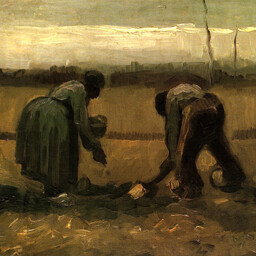The Estonian language has many proverbs about work. They show how people related to work at different times. For example, the saying "work turned a monkey into a human" is from the Soviet era. It represents forced labor. But there are also sayings that praise work, such as "work praises the doer".
Historian Andres Adamson says that many proverbs come from peasants. For example, "work never ends" or "work is a fool's pastime". It is also said that work should be rewarded. For instance, "an empty sack does not stand upright".
People are divided into three groups in terms of work. Some work for self-fulfillment, others for a living, and some try to avoid work. Economist Maaja Vadi says that in Estonia, 69% of people work for a living. Only 16% live to work.
Work culture is important for the country's economy. For example, when building a nuclear power plant, one must consider whether we can maintain it. Work culture is influenced by history, people's perceptions, and management. Good management increases productivity.
In the past, work was seasonal. Much work was done in the fall, less in the winter. Serfdom came to Estonia in the 17th century. It was related to large-scale grain production. Working hours were regulated only in the 20th century. Before that, people worked long hours, such as 11.5 hours a day.
Women and men had different wages. For example, in 1875, a farmhand received over 15 rubles, but a maid only 7.5 rubles. Today the gap is smaller, but it is still a problem.
Today, work is diverse. People seek self-fulfillment. New trends include shorter work weeks and artificial intelligence. A four-day work week has been successful in some companies. Artificial intelligence is changing many jobs, especially lower-paying positions.
Young people also want personal development at work. They value environmental sustainability and honesty. Management culture is an important area of development in Estonia. Good management affects how employees think about their work.

